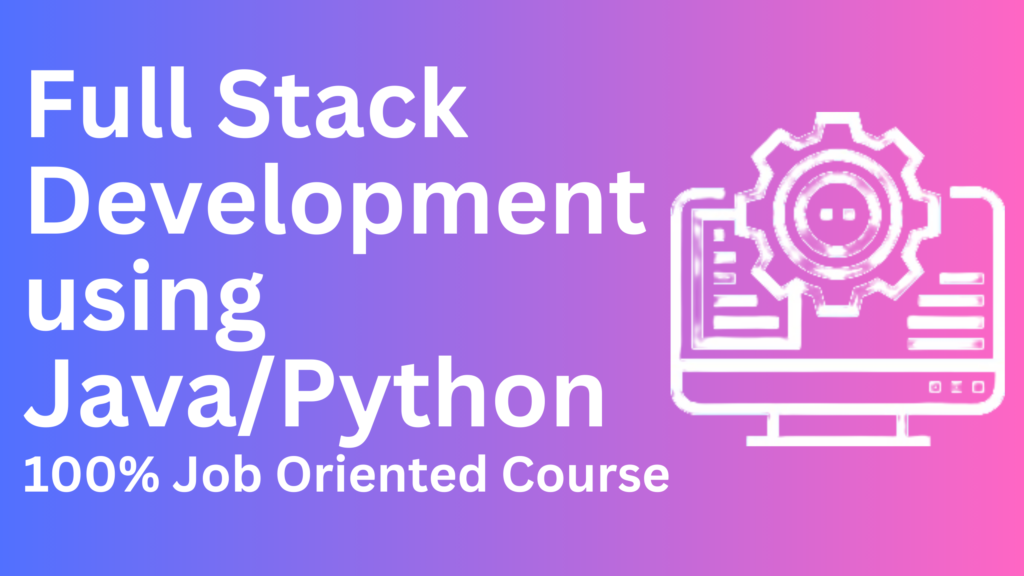In today’s global job market, having strong English language skills is becoming increasingly essential for professional success. Whether you are a non-native English speaker or simply want to enhance your communication abilities, being able to speak English proficiently can significantly impact your chances of acing an interview. This article aims to provide valuable insights and practical tips on how to improve your English language skills specifically for interviews. From preparing for interviews to overcoming common challenges, we will explore various strategies to help you confidently navigate English interviews and increase your chances of landing your dream job.
The Importance of English Language Skills in Interviews
1.1 The Role of English Language Skills in Global Job Market
In today’s globalized job market, English language skills have become increasingly important. English is often considered the lingua franca of business and communication, making it a valuable asset for job seekers. Employers often prioritize candidates who can effectively communicate in English, as it allows for seamless collaboration and interaction with colleagues and clients from different parts of the world.
1.2 Implications for Non-Native English Speakers
Non-native English speakers may face additional challenges during interviews, as they navigate through language barriers and cultural differences. However, it’s important to remember that fluency in English is not the only determining factor for success. Employers also value qualities like adaptability, problem-solving skills, and a positive attitude. With the right approach and preparation, non-native English speakers can confidently showcase their abilities and impress interviewers.
Preparing for an English Language Interview
2.1 Researching the Company and Industry in English
Before any interview, it’s crucial to research the company and industry you’re applying to. Non-native English speakers should take this opportunity to enhance their English skills by reading articles, watching videos, and listening to podcasts related to the field. This will not only help you understand the industry-specific vocabulary but also give you more confidence in discussing relevant topics during the interview.
2.2 Understanding Common Interview Questions in English
To excel in an English language interview, it’s essential to familiarize yourself with common interview questions. Practice answering questions related to your qualifications, experience, strengths, weaknesses, and career goals. Consider seeking guidance from English language learning resources that specialize in interview preparation. By preparing well, you’ll be better equipped to articulate your thoughts fluently and impress the interviewer.
Enhancing Listening and Comprehension Skills
3.1 Practicing Active Listening Techniques
Improving listening skills is crucial for effective communication in interviews. Actively listen to English podcasts, watch movies or TV shows in English, and engage in conversations with native English speakers. Pay attention to pronunciation, intonation, and idiomatic expressions. By actively practicing listening, you’ll become more comfortable with different accents and develop a better understanding of English conversations.
3.2 Utilizing English Language Learning Resources
Take advantage of the numerous English language learning resources available online. There are websites, apps, and language exchange platforms that offer interactive exercises, grammar lessons, and vocabulary-building tools. Engage with these resources regularly to expand your language skills and gain confidence in your abilities. Remember, practice makes perfect, so dedicate time each day to hone your English language skills.
Building Fluency and Confidence in Speaking English
4.1 Engaging in Conversational English Practice
To build fluency in speaking English, it’s essential to engage in regular conversation practice. Find language exchange partners or join English conversation clubs where you can interact with native speakers and fellow learners. Don’t be afraid to make mistakes; practicing conversation will help you improve your pronunciation, grammar, and overall confidence in speaking English.

4.2 Overcoming Fear of Making Mistakes
One common barrier for non-native English speakers is the fear of making mistakes. Remember, mistakes are a natural part of the learning process. Embrace them as opportunities for growth and improvement. Often, native English speakers appreciate the effort put into learning their language and are more interested in the content of what you’re saying rather than minor errors. So, be confident, speak up, and let your personality shine through.
With dedication, practice, and a positive mindset, non-native English speakers can effectively navigate English language interviews and showcase their abilities to potential employers. So, take a deep breath, believe in yourself, and let your English skills impress those interviewers!
Mastering Essential English Vocabulary for Interviews
5.1 Learning Industry-Specific Terminology
When it comes to interviews, knowing the right jargon can make all the difference. Take the time to research and learn industry-specific terminology that is commonly used in your field. From acronyms to technical terms, make sure you have a solid understanding of the vocabulary so you can communicate confidently and impress your potential employer.
5.2 Expanding Professional English Vocabulary
While industry-specific terminology is important, it’s also crucial to have a robust professional vocabulary. Enhance your English language skills by reading books, articles, and even watching TV shows or movies that showcase formal and professional language. This will help you speak fluently and express yourself with clarity during the interview.
Strategies for Effective Communication in English Interviews
6.1 Developing Effective Non-Verbal Communication Skills
Communication goes beyond words, especially in interviews. Non-verbal cues such as eye contact, posture, and facial expressions play a vital role in conveying your confidence and enthusiasm. Practice maintaining good body language and ensure your non-verbal signals align with your verbal communication to create a positive impression.
6.2 Responding Clearly and Concisely to Interview Questions
Interviewers appreciate concise and to-the-point answers. Practice articulating your thoughts effectively, ensuring your responses are clear and concise. Avoid rambling or going off on tangents, as it can dilute your message. Remember, brevity is key, and your ability to communicate concisely will leave a lasting impression on the interviewer.
Overcoming Common Challenges in English Interviews
7.1 Dealing with Nervousness and Anxiety
Nervousness is natural, but don’t let it hinder your English interview performance. Take deep breaths, remind yourself of your strengths, and focus on the present moment. Prepare beforehand, practice your responses, and visualize success to boost your confidence. Remember, the interviewer wants to see the real you, so embrace your nervousness and let your skills shine through.
7.2 Managing Language Barriers and Accents
Accents and language barriers can be intimidating, but they don’t have to hold you back. Speak clearly, enunciate your words, and try to maintain a steady pace. If you have a strong accent, take pride in it and embrace your unique identity. Remember, effective communication is not about erasing your accent, but rather about making yourself understood. Confidence and clarity are key.
Practicing and Polishing English Language Skills for Success
8.1 Joining English Conversation Groups or Language Exchanges
One of the best ways to improve your English language skills is by immersing yourself in conversations with native speakers. Join English conversation groups or language exchanges where you can practice speaking in a comfortable and supportive environment. Engaging in regular conversations will boost your fluency and give you the opportunity to learn from others.
8.2 Seeking Feedback and Continuous Improvement
Never underestimate the power of feedback. Ask trusted friends, colleagues, or language tutors to provide constructive criticism on your English speaking skills. Actively seek opportunities for improvement and incorporate the feedback you receive into your practice sessions. Remember, becoming a proficient English speaker is an ongoing process, so embrace the feedback and continuously strive for improvement.
So there you have it! By mastering essential vocabulary, practicing effective communication strategies, overcoming common challenges, and constantly honing your language skills, you’ll be well-equipped to speak English confidently during interviews. Now go out there and land that dream job with your impressive English skills and charming personality!
By developing and honing your English language skills for interviews, you are equipping yourself with a valuable tool that can open doors to new opportunities and career growth. Remember, practice makes perfect, so continue to immerse yourself in English language resources, seek feedback, and engage in conversations to refine your skills. With dedication and perseverance, you can master the art of speaking English in interviews and increase your chances of success. Good luck on your journey towards interview excellence!
Popular Programs We Offer
For Working Professionals, Passout Freshers, College Students
Below Programs are Professional Certification Courses specially designed by Industry Experts for Working Professionals and Freshers from IT/Non-IT Background
For College/School Students
Below Programs are short term Courses specially designed for College and School Students. Duration : 2/4/6/8 Weeks Courses
FAQ
1. How important is it to have good English language skills in job interviews?
Having good English language skills in job interviews is highly important, especially in today’s globalized job market. Employers often prioritize candidates who can effectively communicate in English, as it demonstrates their ability to collaborate with international colleagues and clients. Strong English language skills can give you a competitive edge and increase your chances of securing job offers.
2. I am a non-native English speaker. How can I improve my English language skills specifically for interviews?
To improve your English language skills for interviews, it is crucial to practice regularly. Engage in conversations with native English speakers, join language exchange programs, and participate in mock interview sessions. Additionally, focus on learning and using industry-specific vocabulary and familiarize yourself with common interview questions in English. Utilize online resources, language learning apps, and English language courses to enhance your listening, speaking, and comprehension abilities.
3. How can I overcome nervousness and anxiety while speaking English in interviews?
Overcoming nervousness and anxiety while speaking English in interviews requires practice and confidence-building strategies. Prepare thoroughly by researching the company and practicing common interview questions in English. Engage in mock interviews with friends or mentors to simulate the interview environment. Deep breathing exercises and positive self-talk can also help calm nerves. Remember, making mistakes is a part of the learning process, so embrace them as opportunities for growth and improvement.
4. Are there any specific techniques to improve my listening skills in English interviews?
Improving your listening skills in English interviews can be accomplished through various techniques. Practice active listening by focusing on the speaker, maintaining eye contact, and asking for clarification when needed. Watch English movies, TV shows, and news programs to expose yourself to different accents and speech patterns. Listening to English podcasts or audiobooks can also help enhance your comprehension skills. Consistent practice and exposure to spoken English will gradually improve your listening abilities.













